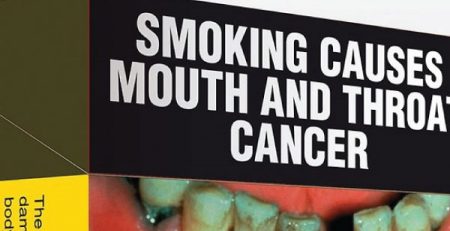Global trade law expert warns Thailand that tobacco control policy is at risk if Thailand participates in the Trans – Pacific Partnership Agreement (TPP)
Global trade law expert warns Thailand that tobacco control policy is at risk if Thailand participates in the Trans-Pacific Partnership Agreement (TPP) Press Release : Tobacco Control
Knowledge and Management Center (TRC) Date : 5 July 2014 Release date : For Immediate Release At the 12th Tobacco or Health Conference, 4 – 5 July 2014 at the Miracle Grand Convention Hotel, Bangkok, Dr. Ben McGrady, an international law expert from the Law Center, Georgetown University, Washington, DC, spoke about the potential trade law and health impacts from the Trans – Pacific Partnership Agreement (TPP) on tobacco control policies in Thailand. Dr. McGrady said that trade liberalization was a cause of problems for tobacco control, and especially for two reasons: (1) It leads to reductions in tariffs which encourages more competition among national and international manufacturers, and (2) it leads to limits on legislating internal regulations by liberalizing countries such that various regulations cannot be independently driven.
Dr. McGrady pointed out that strengthened tobacco control policies in several countries were facing obstacles from legal actions by cigarette companies using investment treaty and trade agreement arguments aiming to impede tobacco control policies. For examples: (a) Philip Morris (Switzerland) sued the Uruguay government after its announcement of expanded pictorial health warnings, (b) Philip Morris Asia Limited sued the Australian government after its announcement of cigarette plain packaging, and (c) Philip Morris Norway sued the Norwegian government for banning the display of cigarettes at points of sales.
In the case of Thailand, Dr. McGrady indicated that the trade agreement that all parties should pay attention to at this moment is the Trans – Pacific Partnership Agreement (TPP) which may lead to provisions that limit issuance of regulations for tobacco control in participating countries and the issuance of regulations to protect international investment on tobacco and tobacco products. The content of these regulations would take precedence over regulations issued by the World Trade Organization (WTO). The United States indicated that the TPP was proposing a specific provision to exempt tobacco; however, details on this matter have not yet been revealed. It is suspected that these exemptions would still weaken various tobacco control measures.
If Thailand decides to participate in the TPP, it is very late to influence the negotiations because risk factors involved in the TPP agreement have already been considered. Besides, the GDP of Thailand is significantly lower than many other TPP member countries. This suggests that the bargaining power of Thailand may be limited. In conclusion, Dr. McGrady noted that the current Thai free trade agreements provide rights to giant tobacco companies to import tobacco to Thailand without tobacco tax charge, and Thailand also provides protection to foreign investors. Besides, there is another important issue to consider according to rules on Intellectual property on trademark license authorization for labels, whether symbols or words. These rules could be an obstacle for Thailand in developing tobacco control policies in the future, such as for cigarette plain packaging which bans showing trademarks or any symbols of products except cigarette brand names on cigarette packs. Moreover, it would require negotiation when considering and issuing regulations for controlling tobacco products which are products different than other products in the future.
Dr. Hatai Chitanondh, the president of the Thailand Health Promotion Institute (THPI) stated that a free trade agreement is very important as it is able to dictate tobacco control performance in Thailand. If Thailand participates as a member country of the TPP without having thoroughly studied its provisions, it could have enormous damage. Tobacco control in Thailand could be stalled, issuing regulations and laws could not be done freely, the Thailand Tobacco Monopoly (TTM) would not be able to compete with international tobacco companies and would have to shut down, and Thai tobacco farmers would have to be employees of international tobacco companies. Interestingly, the roots of the TPP originated in Thailand in 2005, but its content has grown through secret agreements so that even experts in this field cannot truly understand the content of this agreement.
What the government can do to ensure the rights to public health of Thai people is to adhere to the Constitution of the Kingdom of Thailand which states clearly that providing basic rights includes the government implementing legislation compatible with the rights of citizen in 3 areas: security, environment, and health, said Dr. Hatai.
Prof. Dr. Prakit Vathesatogkit, the Executive Secretary of ASH Thailand, addressed the case where cigarette companies have sued the Ministry of Public Health of Thailand in the Administrative Court regarding the expansion to 85% pictorial warnings on cigarette packs. Information from various countries indicates that measures requiring printing large warning pictures on cigarette packs have been adopted in many countries because it is a best value measure with no enforcement cost once adopted by law. Although cigarette companies sued governments in some countries such as Australia and Uruguay, the cigarette companies lost the court cases. The important groups gaining most benefit from this measure are adolescents, who are an important consumer target of tobacco companies.
Cigarettes are products when smoked are difficult to quit. The information from previous studies indicates that 7 in 10 children who smoke continue to smoke throughout their lifetime. This exploitation of adolescents raises ethical questions for cigarette companies, said Dr. Prakit.
Dr. Wonchat Subhachaturas, the director of the Thai Health Professional Alliance against Tobacco (THPAAT) said that the Alliances network of 20 organizations of public health professionals such as doctors, dentists, pharmacists, nurses, medical technicians, and others requested support from the Ministry of Public Health to expand the size of health pictorial warnings on cigarette packs since worldwide scientific results prove that cigarettes are dangerous to health. Therefore, if the Ministry of Public Health does not prevent public health of Thailand people, it is considered as the Ministry of Public Health is not responsible in carrying out its duties.
This policy does not cut off product names; it just reduces product brand image and enlarges health pictorial warnings aiming to warn people regarding the dangers of cigarettes. Claims of tobacco companies are just to protect their income and benefits, while we also must legislate to protect public health. Claims as a free trade agreement is acceptable in actions for general products; however, it is proven that tobacco products are dangerous products to public health. Therefore, we have to protest. Any trade agreement should provide benefits to people, said the Director of the Thai Health Professional Alliance against Tobacco (THPAAT). At the end of the 12th Tobacco or Health Conference held by the Tobacco Control Research and Knowledge Management Center (TRC), Mahidol University, together with the Thai Health Professional
Alliance Against Tobacco (THPAAT), the Department of Disease Control, Ministry of Public Health, Action on Smoking and Health Foundation (ASH Thailand), the Thailand Health Promotion Institute (THPI), the Quitline, the Southeast Asia Tobacco Control Alliance (SEATCA), and the Thai Health Promotion Foundation (ThaiHealth), participants representing researchers, lecturers, government staff, the private sector and general public announced their intention to institute surveillance and anti – fraud measures over all types of tobacco advertisements.
Request more information, please contact:
Coordinator: Haris Taweewatana, Tel., 0-2354-5346, 089-6627-917, Fax: 0-2354-5347
E-mail: haris@trc.or.th












